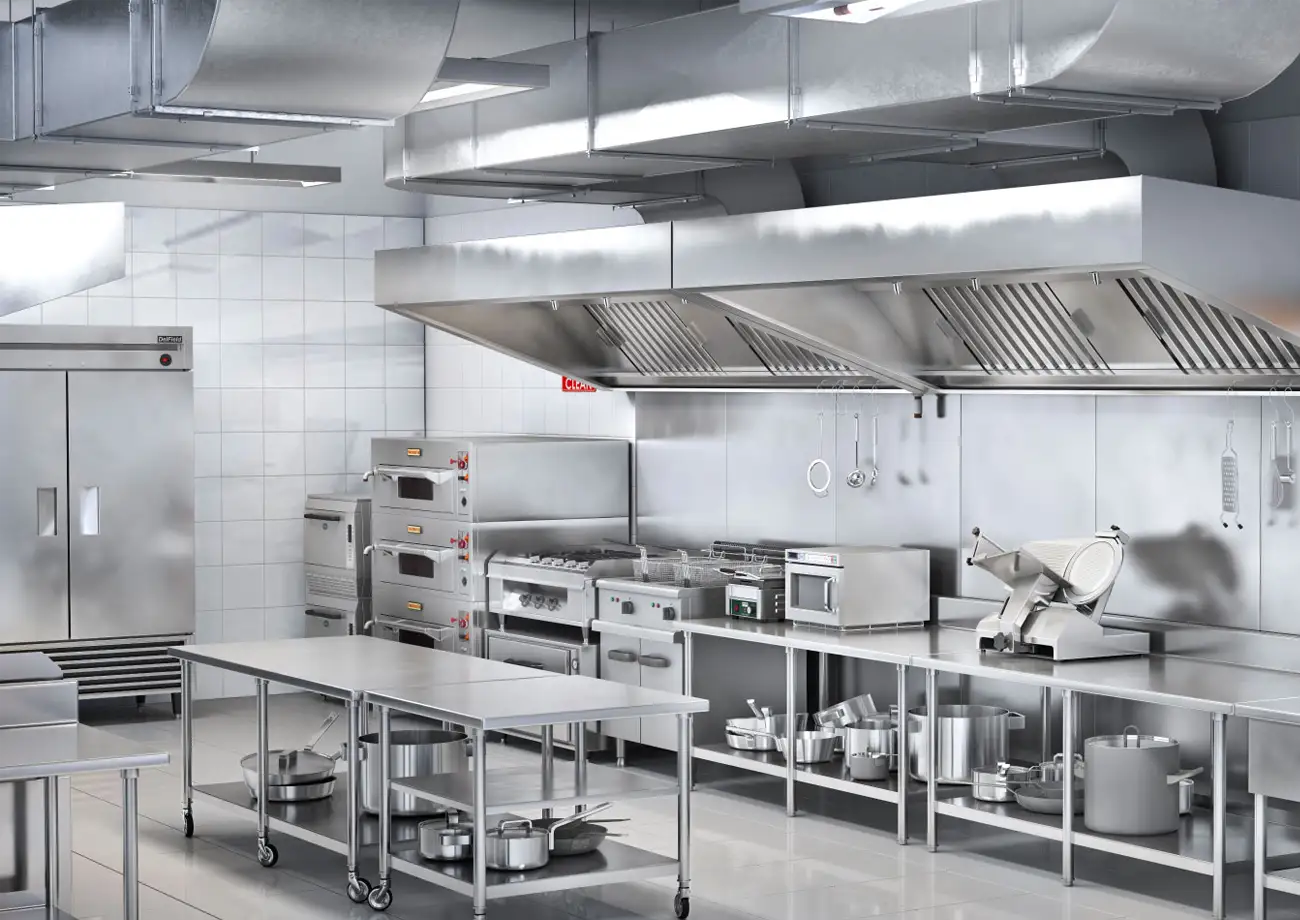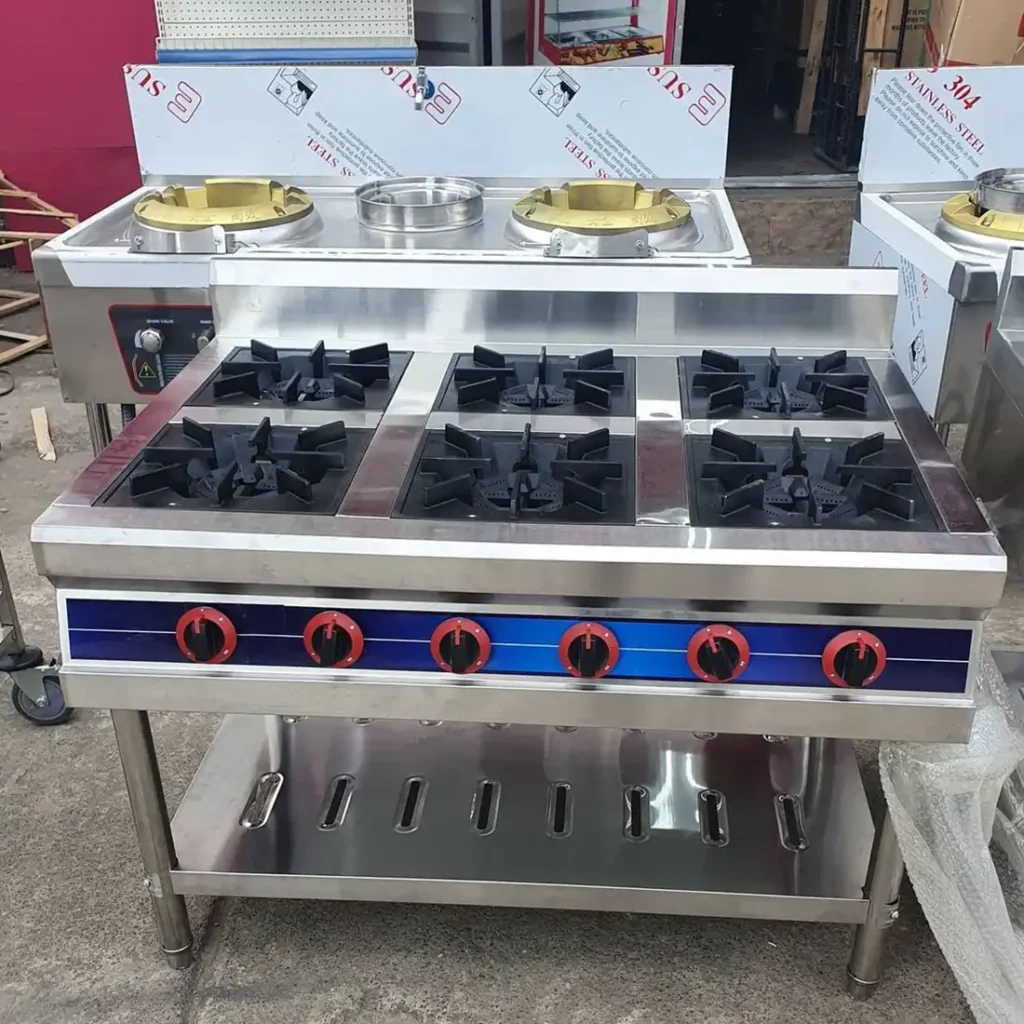
Commercial Kitchen Equipment in Nigeria: Complete Guide for Restaurants and Caterers
Overview of the Commercial Kitchen Equipment Market in Nigeria
Nigeria’s foodservice industry is expanding quickly, especially in urban centers like Lagos, Abuja, and Port Harcourt.
With the rise in restaurants, catering services, and quick-service outlets, demand for reliable commercial kitchen equipment has surged.
Most equipment is imported, which affects pricing, availability, and after-sales service.
There is a growing market for locally fabricated equipment, especially for budget-conscious entrepreneurs.
However, imported equipment remains preferred for quality and durability.
Buyers must be cautious of counterfeit or substandard items.
Trusted suppliers, preferably with a physical showroom and verifiable track record, are recommended.
The market is diverse — from basic setups for small roadside kitchens to industrial-scale setups for hotels and franchises.
Understanding your kitchen’s size, menu, and expected output is essential before making any purchases.
Lastly, price fluctuations due to exchange rate instability and import duties should be factored into budgeting.

Essential Commercial Kitchen Equipment for Nigerian Restaurants
A fully functional kitchen needs equipment grouped by function: cooking, refrigeration, preparation, and cleaning.
Cooking Equipment
Cooking gear includes ranges, ovens, fryers, and grills.
Gas ranges are popular due to inconsistent electricity.
Charcoal grills are still used for traditional dishes but are less efficient.
Electric ovens are best for bakeries but require stable power or an inverter backup.
Combo ovens offer flexibility but are costly.
Always ensure safety certifications and choose models with replaceable parts.
Refrigeration Units
Cold storage is crucial in Nigeria’s hot climate.
Commercial fridges, freezers, and chillers keep ingredients fresh and safe.
Upright freezers are suitable for tight kitchens.
Chest freezers are cheaper and store more bulk, making them ideal for meat or frozen goods.
Invest in voltage stabilizers to prevent damage from power surges.
Food Prep Equipment
Blenders, mixers, food processors, and slicers speed up meal preparation.
Industrial models withstand heavy use better than domestic ones.
For Nigerian meals, strong blenders for soups and stew bases are essential.
Stainless steel tables and cutting surfaces improve hygiene and efficiency.
Choose prep tools that are easy to clean and NSF-certified if available.
Dishwashing and Sanitation
Maintaining hygiene is non-negotiable.
Use dishwashers where possible, but many kitchens rely on manual washing stations.
Install triple-compartment sinks: wash, rinse, sanitize.
Grease traps prevent plumbing issues.
Handwashing stations with foot pedals boost hygiene.
Also, invest in waste disposal systems and insect-proof bins.
Factors to Consider When Buying Kitchen Equipment in Nigeria
Power Supply Compatibility
Electric equipment should match Nigeria’s 220V power system.
Generators or inverters are common in most kitchens due to unreliable grid supply.
Verify if appliances can handle voltage fluctuation or use with stabilizers.
Durability and Material Quality
Stainless steel equipment lasts longer and resists rust, ideal for humid environments.
Avoid cheap plastics or thin aluminum.
Investing upfront in quality reduces long-term maintenance and replacement costs.
Local Support and Maintenance
Choose brands with a service presence in Nigeria.
Ask about warranties, spare parts availability, and technician access.
Even imported items should have a reliable local distributor.
Best Places to Buy Commercial Kitchen Equipment in Nigeria
Top Locations and Suppliers
- Lagos: Alaba International Market, Ojota Kitchen Equipment Market
- Abuja: Wuse Market, Garki Area 1
- Online: Jumia, Konga, KitchenBest, Crown Kitchen Equipment
- Direct Import: Alibaba or partner manufacturers in China or Turkey
Always compare options and check for genuine reviews.
Visit showrooms if possible to inspect equipment.
Estimated Costs and Budgeting Tips
Prices vary widely.
Here’s a rough breakdown:
- 4-burner gas range: ₦200,000 – ₦450,000
- Chest freezer: ₦180,000 – ₦350,000
- Industrial blender: ₦50,000 – ₦120,000
- Dishwasher: ₦300,000+
- Worktables and sinks: ₦60,000 – ₦150,000 each
Tips:
- Buy in bulk for discounts
- Consider used/refurbished gear from trusted sellers
- Budget 20% extra for unexpected expenses
Tips for Setting Up an Efficient Commercial Kitchen
- Workflow: Group equipment by function to reduce staff movement
- Ventilation: Invest in exhaust hoods and fans to manage heat
- Space: Avoid overcrowding — prioritize access over quantity
- Lighting: Bright LED lights improve productivity and safety
- Water Supply: Reliable plumbing and drainage are essential
Good setup boosts productivity, safety, and food quality.
Conclusion and Final Recommendations
Investing in commercial kitchen equipment in Nigeria is capital intensive but necessary for serious food businesses.
Plan purchases around your menu, kitchen space, and power supply.
Always prioritize durability, after-sales service, and compatibility with local conditions.
Start with essentials, expand as revenue grows, and stay updated on new tech and trends.
